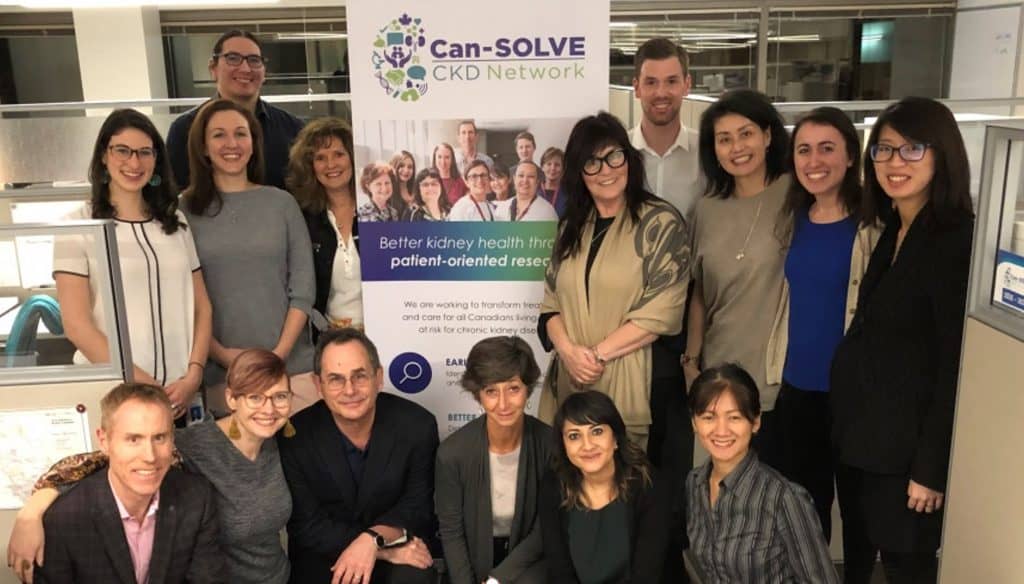The CanSOLVE-CKD Network was developed by St. Paul’s Hospital Principal Investigator Dr. Adeera Levin. It has a bold vision – that every Canadian with or at high risk for CKD will receive the best recommended care, experience optimal outcomes, and have the opportunity to participate in studies with novel therapies, regardless of age, sex, gender, location, or ethnicity.
Over four million Canadians currently live with chronic kidney disease (CKD), defined as the presence of kidney damage, or a decreased level of kidney function, for a period of three months or more. Kidney disease can range from mild to severe and in some cases, lead to kidney failure (sometimes referred to as end-stage kidney disease). Fortunately, most people do not progress to end-stage kidney disease, especially if they are diagnosed early and are able to take steps to preserve their remaining kidney function.
Working in partnership with patients, researchers, health care providers, and policy-makers, CanSOLVE aims to put patients first and overcome the challenges preventing research evidence to be put into clinical practice.
Over 120 researchers and 75 patient partners across Canada participated in 18 patient-centred projects spanning basic science, clinical, and population health research. Projects were organized around three themes: identifying CKD in high-risk populations, testing new therapies in people with progressive CKD, and determining how best to deliver patient-centred clinical care. All activities were guided by a Patient Governance Circle and Indigenous Peoples’ Engagement and Research Council, to ensure CanSOLVE addresses and respects the unique needs and perspectives of patients, including Indigenous peoples.
Working together to make a difference
“I had my living donor kidney transplant in 2015. I’m passionate about educating and advocating, and as I go through my healing journey, I’m finding strength in talking to others, especially in the aboriginal and northern communities. Being part of the research level and feedback workshops with CanSOLVE-CKD has been very meaningful to me.” – Mary Beaucage, Nipissing First Nation, outside of North Bay, Ontario.
CanSOLVE-CKD is one of five chronic disease networks funded by the Canadian Institutes of Health Research through the Strategy for Patient-Oriented Research. Funding is also provided by more than 30 partners, including provincial kidney care agencies, universities, industry, and private donors. St. Paul’s Foundation had a $1 million goal to support CanSOLVE-CKD, and in March 2021, we reached the end of our five-year fundraising commitment. We are deeply grateful for your generous gift, which helped to cover the remaining portion of funding needed. This priority project would not have been possible without donor support, especially your contribution to complete it.
Next steps
While CanSOLVE-CKD has completed their first five years of research, they have plans to continue onto Phase II. This will focus on sustaining previous findings, with an enhanced focus on equal and equitable access to care for patients who are black, Indigenous, or people of colour.
Your donations have helped have helped to advance kidney research and improve patient outcomes for Canadians with or at risk for chronic kidney disease. To continue to support our renal program, donate today.
